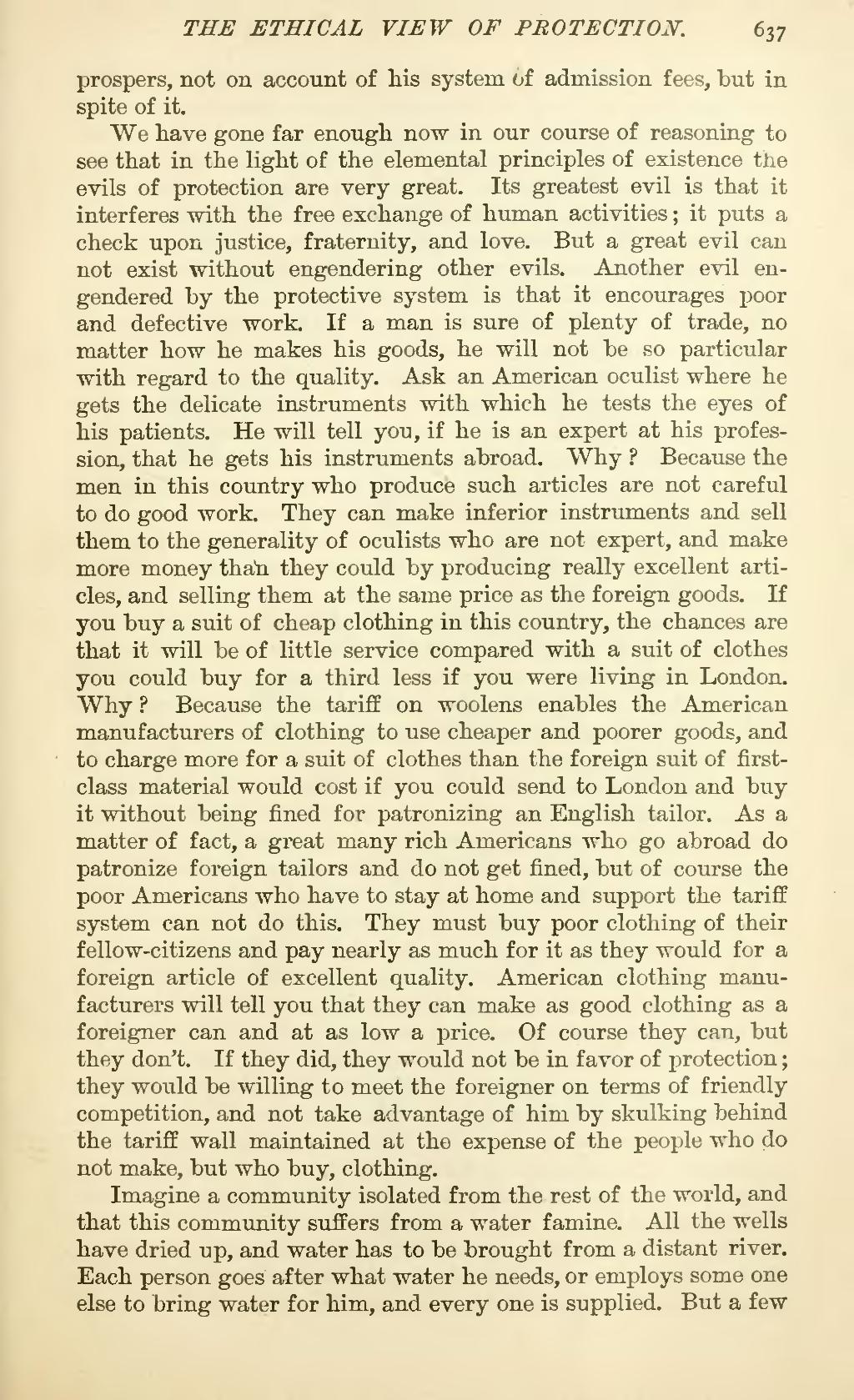prospers, not on account of his system of admission fees, but in spite of it.
We have gone far enough, now in our course of reasoning to see that in the light of the elemental principles of existence the evils of protection are very great. Its greatest evil is that it interferes with the free exchange of human activities; it puts a check upon justice, fraternity, and love. But a great evil can not exist without engendering other evils. Another evil engendered by the protective system is that it encourages poor and defective work. If a man is sure of plenty of trade, no matter how he makes his goods, he will not be so particular with regard to the quality. Ask an American oculist where he gets the delicate instruments with which, he tests the eyes of his patients. He will tell you, if he is an expert at his profession, that he gets his instruments abroad. Why? Because the men in this country who produce such articles are not careful to do good work. They can make inferior instruments and sell them to the generality of oculists who are not expert, and make more money than they could by producing really excellent articles, and selling them at the same price as the foreign goods. If you buy a suit of cheap clothing in this country, the chances are that it will be of little service compared with a suit of clothes you could buy for a third less if you were living in London. Why? Because the tariff on woolens enables the American manufacturers of clothing to use cheaper and poorer goods, and to charge more for a suit of clothes than the foreign suit of first class material would cost if you could send to London and buy it without being fined for patronizing an English tailor. As a matter of fact, a great many rich Americans who go abroad do patronize foreign tailors and do not get fined, but of course the poor Americans who have to stay at home and support the tariff system can not do this. They must buy poor clothing of their fellow-citizens and pay nearly as much, for it as they would for a foreign article of excellent quality. American clothing manufacturers will tell you that they can make as good clothing as a foreigner can and at as low a price. Of course they can, but they don't. If they did, they would not be in favor of protection; they would be willing to meet the foreigner on terms of friendly competition, and not take advantage of him by skulking behind the tariff wall maintained at the expense of the people who do not make, but who buy, clothing.
Imagine a community isolated from the rest of the world, and that this community suffers from a water famine. All the wells have dried up, and water has to be brought from a distant river. Each person goes after what water he needs, or employs some one else to bring water for him, and every one is supplied. But a few

